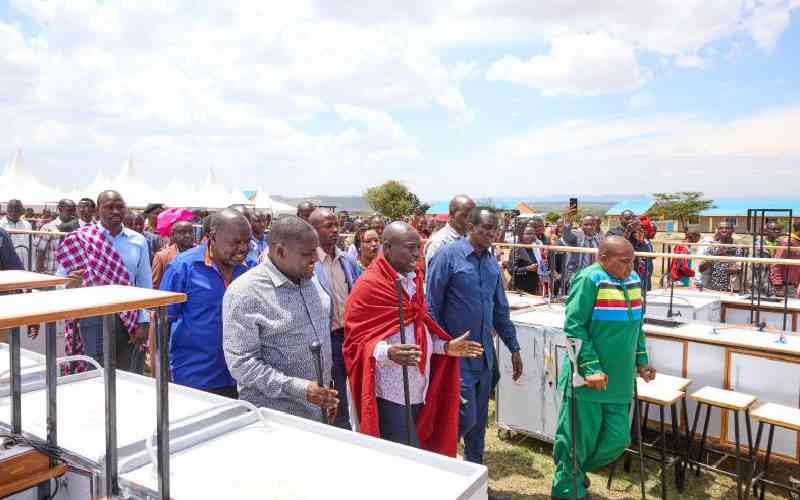×
The Standard e-Paper
Home To Bold Columnists

Deputy President Rigathi Gachagua and Narok Governor Patrick ole Ntutu during the commissioning of 38 mobile laboratories for Junior Secondary Schools in Narok. [File, Standard]
Thousands of junior secondary school (JSS) students across the country struggle to learn science subjects.